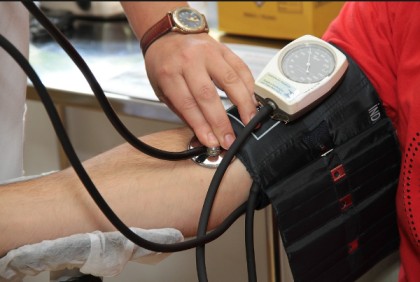HEALTH
Why is Ambulatory Blood Pressure Monitoring So Essential?

Before diving into the details of ambulatory blood pressure monitoring, it’s important to understand why it’s so important and key to your health. Although often hypertension specialists are well aware of its necessity, there may be cases when family physicians aren’t as knowledgeable about how it differs from home blood pressure monitoring.
Why is Measuring My Blood Pressure So Important?
Investing in professional blood pressure monitors to monitor your blood pressure is key to determining your risk factor for cardiovascular disease or stroke. For those with hypertension, blood pressure monitors are a key tool for identifying warning signs and minimizing risks. In fact, recent studies show that approximately one in three adults in the United States has high blood pressure and of the large percentage that has hypertension, only less than half of them have their blood pressure under control.
What Are the Blood Pressure Monitoring Methods Available?
There are three primary ways you can monitor your blood pressure, the first being taking a trip to your primary care physician’s office to have it monitored by them. You can also invest in professional blood pressure monitors for your household or employ ambulatory blood pressure monitoring.
We’ve broken them down for you below:
- Physician’s Office Blood Pressure Monitoring: Each time you have a checkup with your primary physician, they’ll monitor your blood pressure. It’s often one of the first things they do. However, it’s important to keep in mind that throughout the day, depending on your mood and stress levels, and what activities you’ve done, it won’t always provide the most accurate reading. This is why many prefer the latter two methods of blood pressure monitoring.
- Home Blood Pressure Monitoring: By investing in professional blood pressure monitors, you can easily measure your own blood pressure at home to get a more accurate reading. Not only is monitoring your blood pressure at home easier, but the opportunity also provides patients with more insight into the process and awareness of their health. However, to get the best results patients need to be able to consistently record data and take proper measurements. There are often also concerns about finding a monitor with the proper cuff size for your body, but there are many companies now offering more flexible home blood pressure monitoring products with various sizes available.
- Ambulatory Blood Pressure Monitoring: Ambulatory blood pressure monitoring is when you monitor your blood pressure throughout 24 hours, meaning all of the moments when you’re out and about, as well as sleeping and doing less strenuous tasks. Ambulatory blood pressure monitors are designed using a single belt worn around the waist that’s connected to a cuff on the upper arm.
How Do I Determine What Type of Monitoring is Right For Me?
To determine the best one out of the three types of blood pressure monitoring for you, always take your medical needs into account, as well as speak with a physician or your hypertension specialist. Those dealing with more specific health ailments or at a greater risk of developing cardiovascular disease or having a stroke may require more advanced monitoring methods than the average adult, so having an expert’s opinion is always best.










